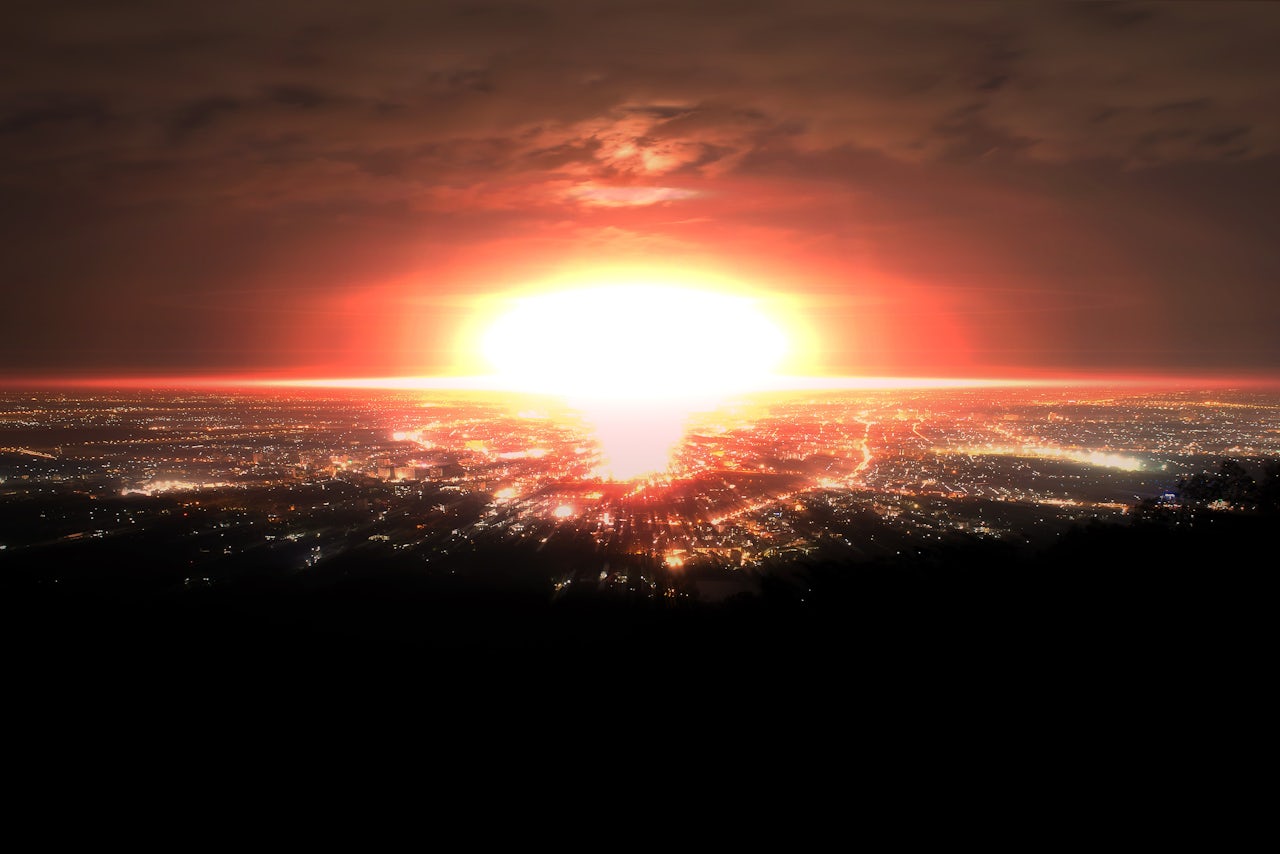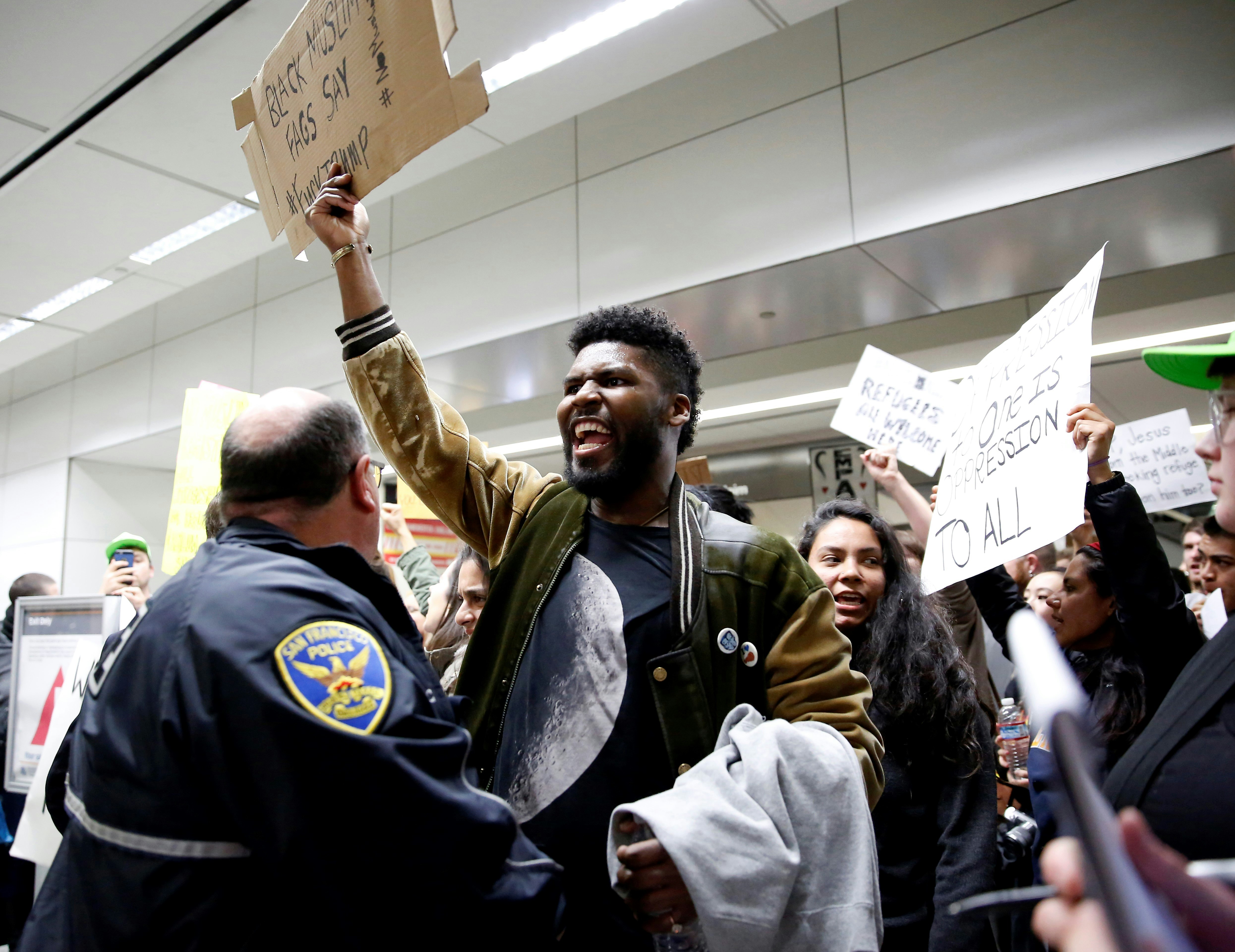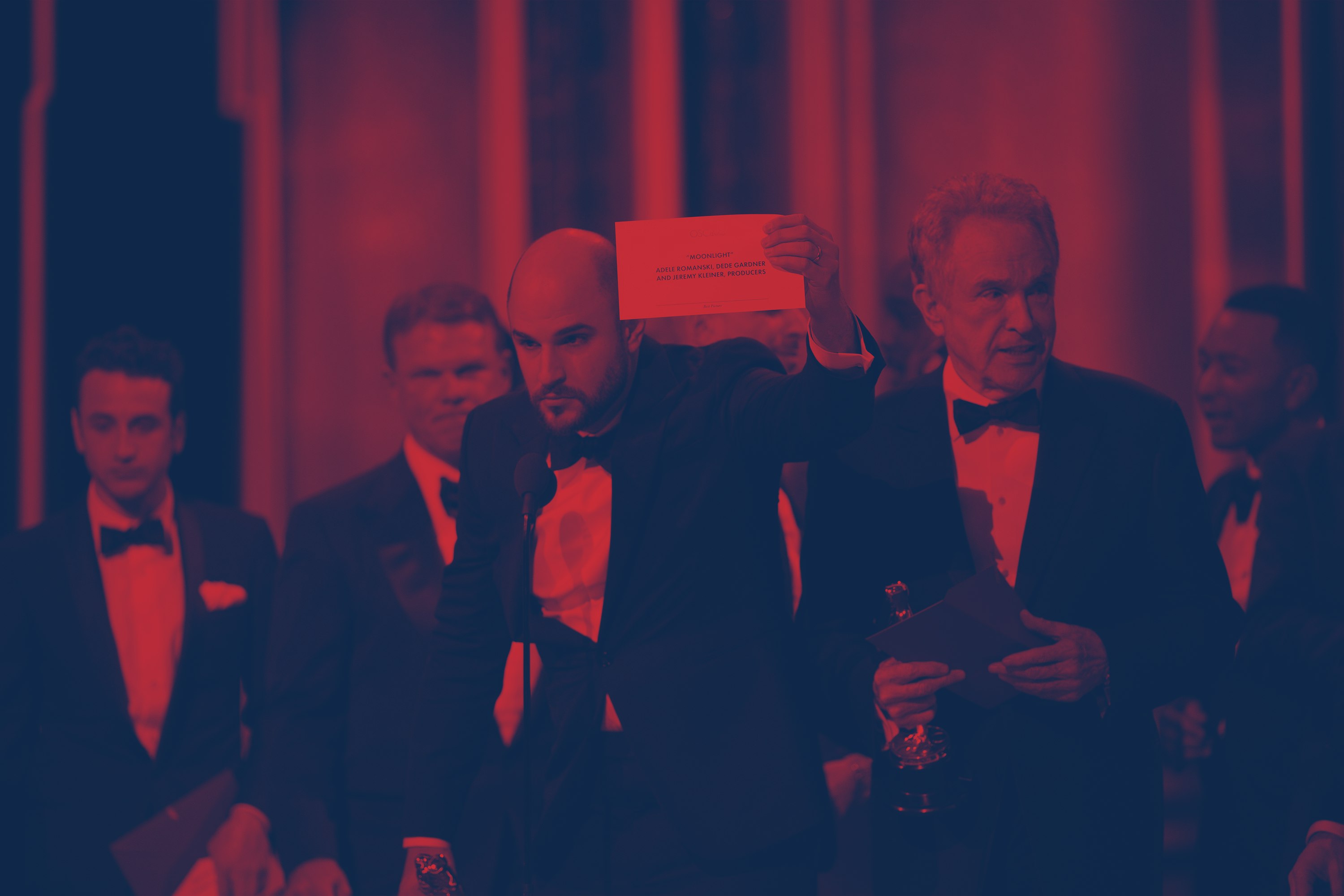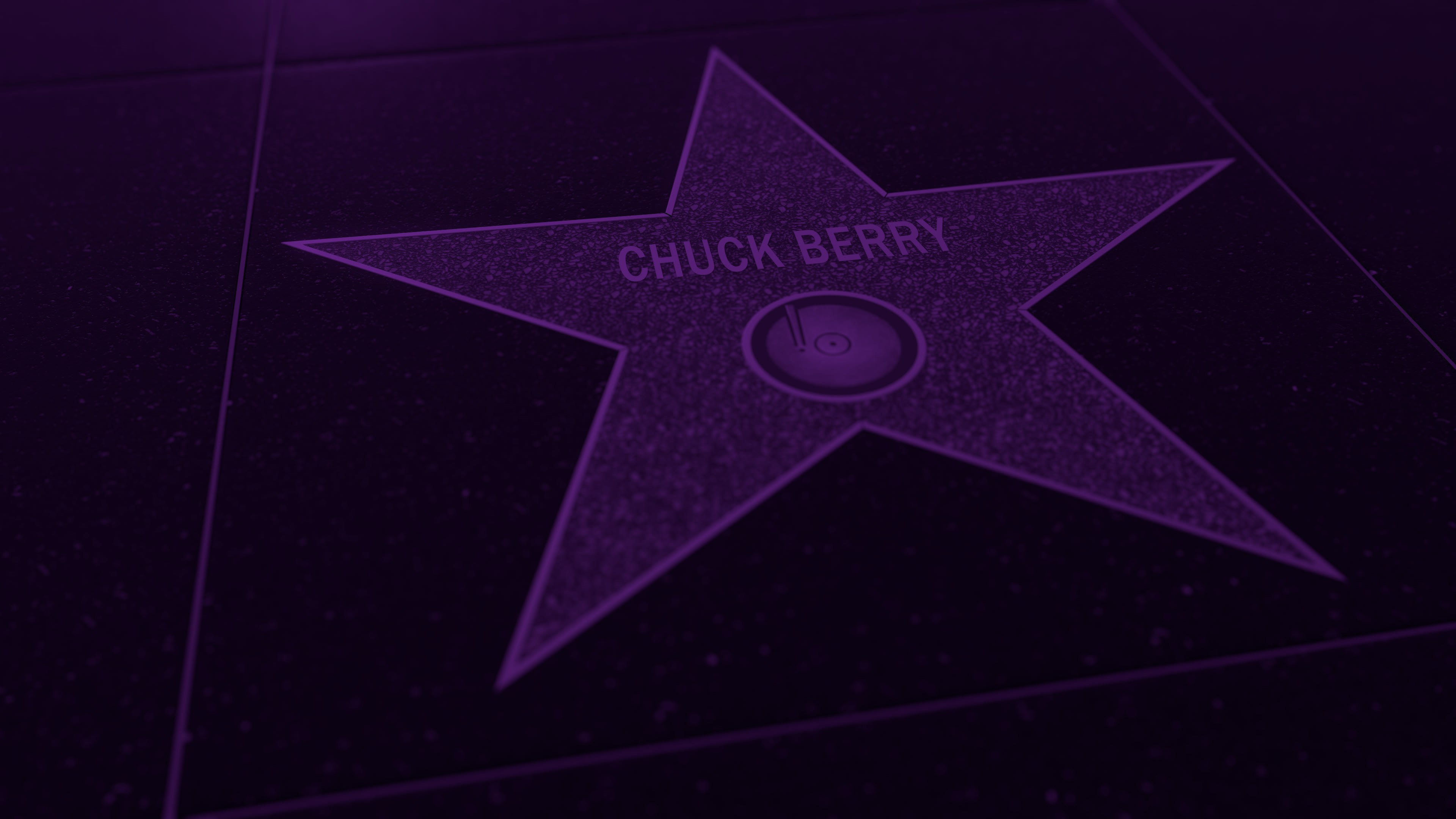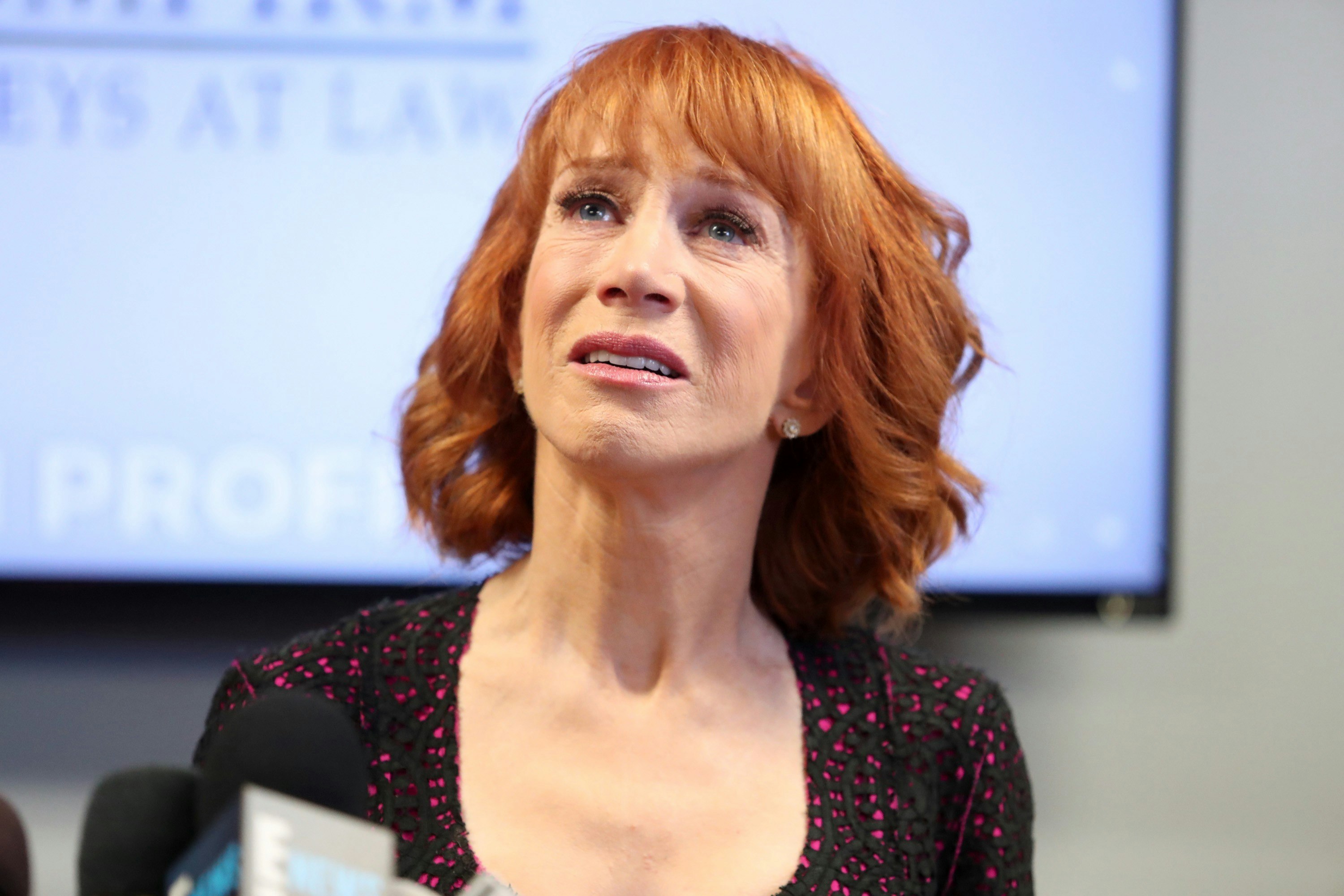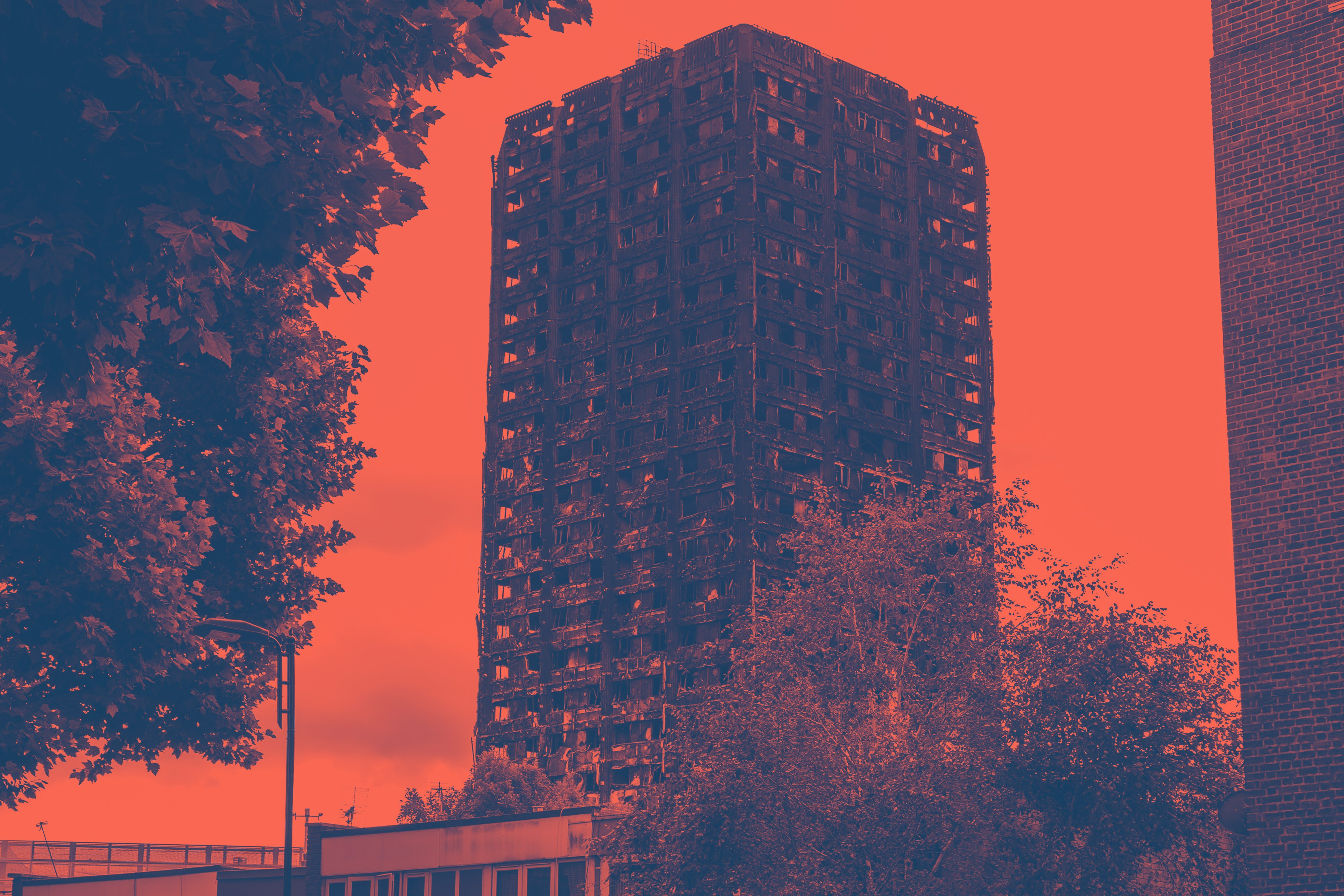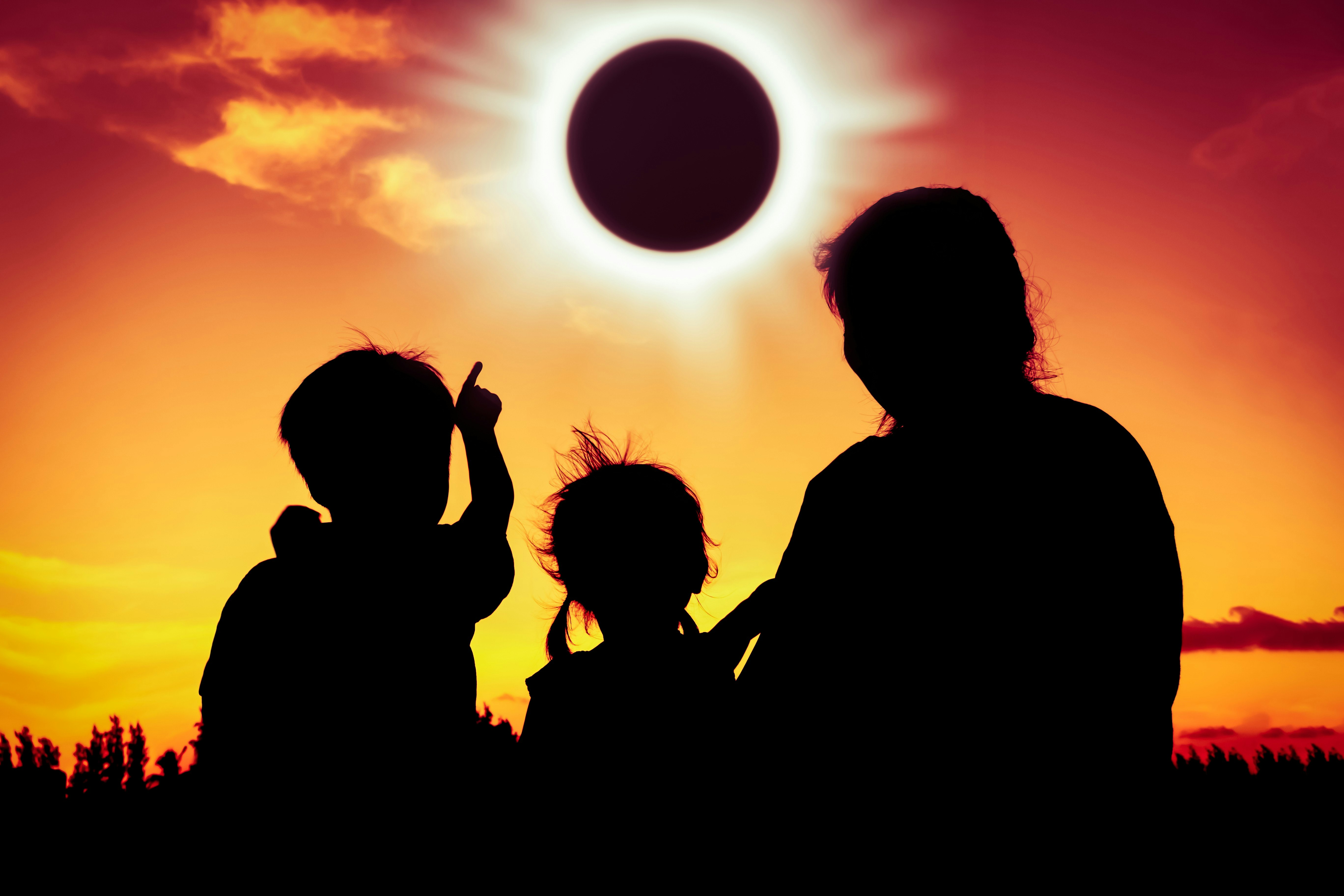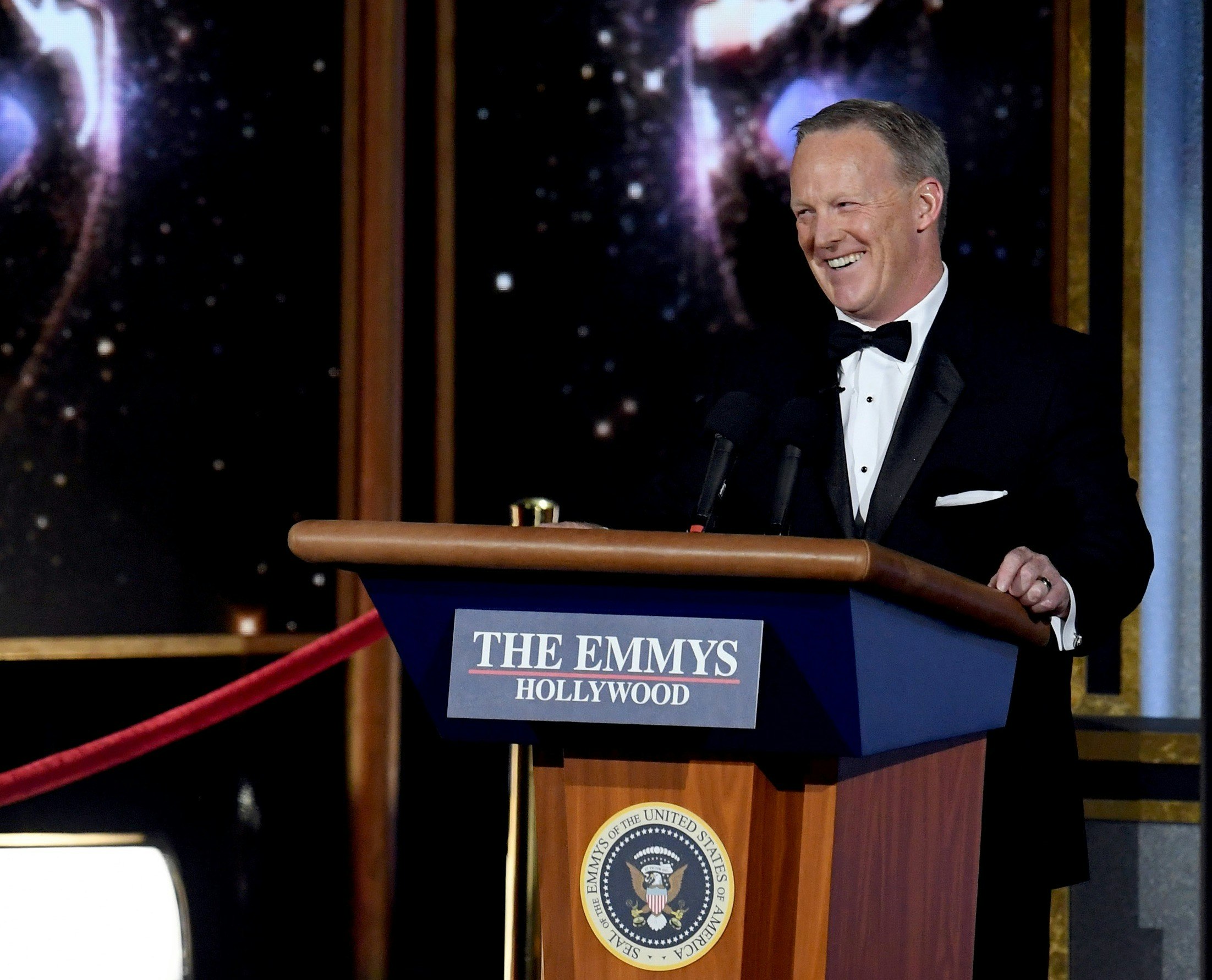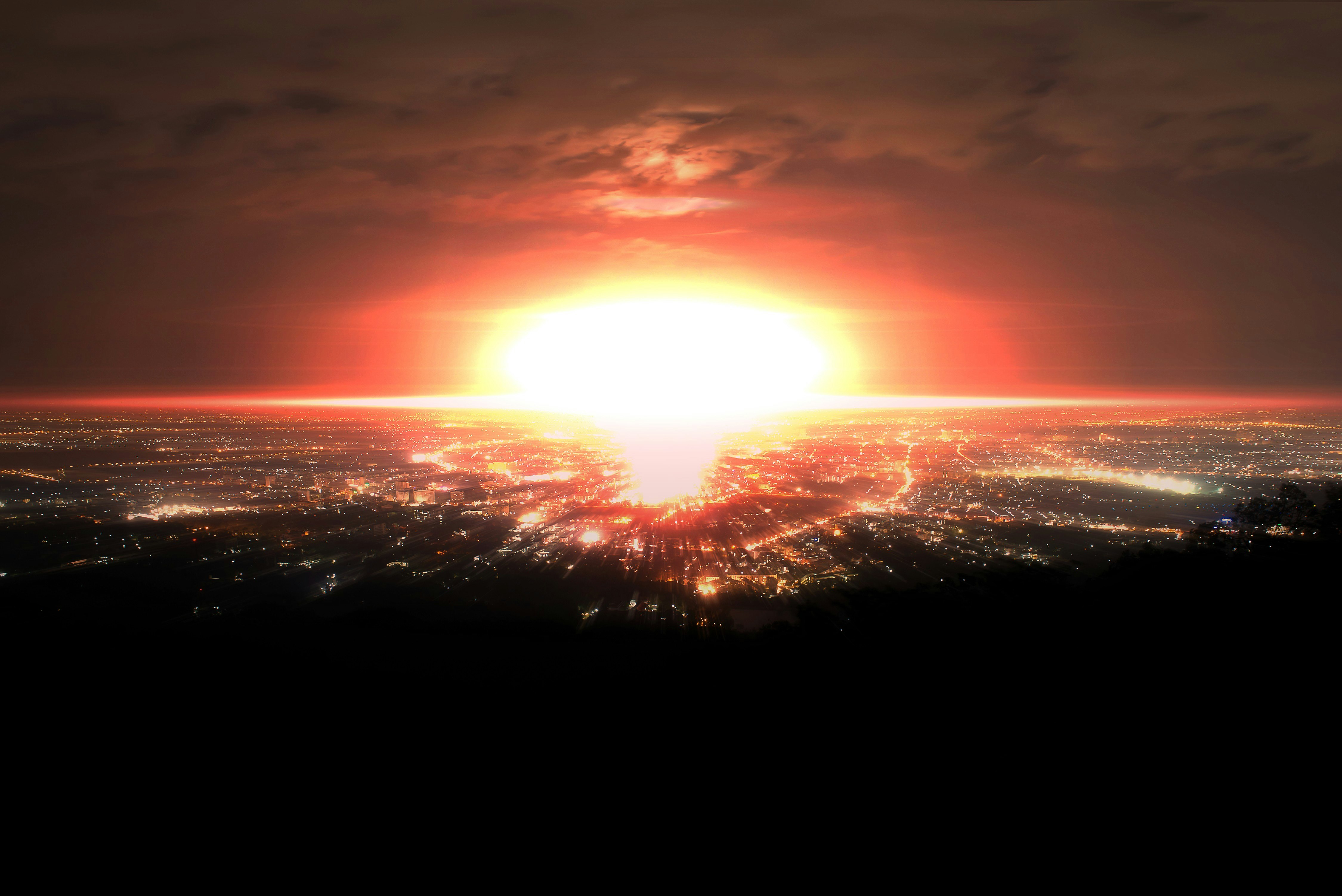IT HAPPENED
is a series reflecting on our memories of 2017, one month at a time, as we head into the new year.
Many years ago I experienced a devastating months-long bout of depression brought on by severe hypochondria. I was finally sent to see a psychiatrist and began to get treatment. Something was invading my body from within, I wrongly believed. This year, I became convinced that something was going to destroy me from the outside. I’ve been glued to the news for much of 2017. Endlessly scrolling through headlines morning to night. I tried to remain calm, but things began to take a existential turn when North Korea started trending. When I was in the throes of hypochondriac depression I obsessively Googled symptoms, each new bit of knowledge sending me spiralling into a fresh panic. That same panic returned with each rocket test and blustering response from the president. Instead of cautiousness in the face of the growing threat, the president began trading schoolyard insults with the North Korean dictator. “Fire and fury” would end “Little Rocket Man,” he promised. I began to suffer a familiar crisis.
Kim Jong-Un’s latest launch shows his program is nearing completion, leaving only a few more tests, including an extremely dangerous atmospheric test, before he will be able to reach the mainland U.S. This month National Security Advisor said the chance of war is increasing, and Sen. Lindsey Graham put the odds at 30 percent the president would strike North Korea if another missile were tested by North Korea. All this is backdropped by a decimated State Department under Rex Tillerson’s watch. Diplomacy looks harder everyday. The doomsday clock run by the Bulletin of Atomic Scientists is now much closer to midnight than it has ever been in decades. We have returned to an age of full-on nuclear anxiety.
Kim Jong-Un is a ruthless millennial despot hell bent on becoming a nuclear power as ballast to American power and influence. This isn’t new, of course, and although Western democracies haven’t been able to curb his pursuits, they have avoided large-scale conflict. What’s new is the fact that the American president seems uninterested in problem solving, and is behaving more like his North Korean counterpart, interested in only in remaining in power. I’m now not afraid of being killed by rockets sent by a suicidal dictator so much as being destroyed after a conflict caused by Trumpian bravado and stupidity.
During the rise in tensions in September, North Korea invited American journalists to tour the hermit kingdom, perhaps hoping to cool the heated rhetoric. Evan Osnos in The New Yorker ended his dispatch like this:
To go between Washington and Pyongyang at this nuclear moment is to be struck, most of all, by how little the two understand each other...a feeling that nobody — not the diplomats, the strategists, or the scholars who have devoted their lives to the subject — is able to describe with confidence how the other side thinks.
What is danger of this misunderstanding? Most immediately it creates the conditions for an nuclear accident — one side believing the other to be issuing a first strike, leading to an all-out conflict. More likely is the Trump administration bumbling into a war while miscalculating the human cost. I’m old enough to remember the misguided march to war with Iraq, the promise of WMDs. But the idiotic proclamations and bad poetry from Trump don’t so much remind me of Bush’s argument for war as they made me think of what Dick Cheney's inner ravings might have sounded like. With the Mueller investigation ramping up pressure each day, my fear is Trump might lash out. His decision to move the U.S. embassy in Israel to Jerusalem at least shows he cares little for what his actions mean beyond the immediate news cycle, and he’s willing to defy his advisors for political expediency. This does not augur well for his actions on North Korea. All reasonable estimates say a war with North Korea would cost millions of lives on the first day, yet talk of “fire and fury” comes so easily from his mouth.
It’s important to remember this how this all began in the 1950s. At the time, the Soviet Union was testing some of the most powerful nuclear weapons known to man and the Cold War had crossed into a proxy conflict on Korean peninsula that technically never ended. During December of 1950, novelist William Faulkner took the stage in Sweden to accept his Nobel Prize in literature. His speech was uncharacteristically short, about 500 words, but contained a clarion call to young writers to relearn the “old verities and truths of the heart” in the fact of nuclear annihilation. His words have bizarre resonance to our age of nuclear fear and political stupidity:
Our tragedy today is a general and universal physical fear so long sustained by now that we can even bear it. There are no longer problems of the spirit. There is only the question: When will I be blown up?
We have returned now to that general and universal physical fear. We’ve become so reliant on feedback loops from social media which have replaced the wherewithal to live in the actual complicated world. The torrent of breaking news can seem so overwhelming as to become debilitating, least of all because we have a leader whose sole concern seems to be keeping himself in the headlines. The stakes could not be higher. Although it seems practically impossible, perhaps the greatest rebuff to this grievous narcissism is to log off and return to one another. To find a common struggle that goes beyond tribal grievances to what Faulkner said alone can make stories strong enough to help us endure — “the human heart in conflict with itself.”
I’ve spent the last couple of months down south, convalescing from my latest anxiety attack and depressive episode. The threat of war remains extremely real but my fear of it has begun to recede. An existential crisis has the strange benefit of making you appreciate the present. And as Faulkner reminded us in his speech, “the basest of all things is to be afraid.” I try to be clear-eyed about the threats we face and not let them overwhelm my life. There is little I can do about it and, as many experts say, we still have time to change course. What I can do is call for nuclear disarmament, deterrence, and diplomacy as the Nobel Peace Prize winners did this year. War need not, should not, ever be inevitable.
When my thoughts spiral into total war I try to think instead of the people of North Korea. I think about the soldiers who recently defected, the horrors they fled from. As much nuclear war scares me, it’s the citizens of North Korea who would suffer most in a potential conflict and are suffering now. While Trump’s sanctioning does little to deter Kim Jong-Un’s nuclear program, it starves the North Korean people.
Now is the time to begin a new worldwide movement for peace, not after it’s too late. UN diplomats are calling for talks with North Korea, as are China, Russia, much of Europe, and, for the love of god, Dennis Rodman. It’s time for the American people to demand the same. If talks don’t work, what have we lost?
One of my grandfathers fought in and almost died in the Korean War and afterwards returned home to oversee production of atomic weapons in Oak Ridge, Tennessee. My other grandfather fought on D-Day in France and returned home to work in the space program in Huntsville, Alabama. I think often of how their lives, altered by history, inform my life now.
Sometimes when the anxiety of nuclear war keeps me up at night I watch the livestream from the International Space Station. The world seems so fragile and beautiful from that height. The vast blue oceans and borderless continents. It’s important to remember we are all on a strange dying planet floating in a universe so vast we cannot possibly understand it. Like Faulkner, I also refuse to accept the end of man. We are greater always than the sum of our parts. As this insane year comes to a close sometimes I pray to the godless mystery of the universe. I pray for mercy instead of violence. Courage in the face of fear. I pray for our leaders to recognize the enormous cost of war and urge them to have pity and compassion on all of mankind. Most of all I pray for luck. We’re gonna need it.
